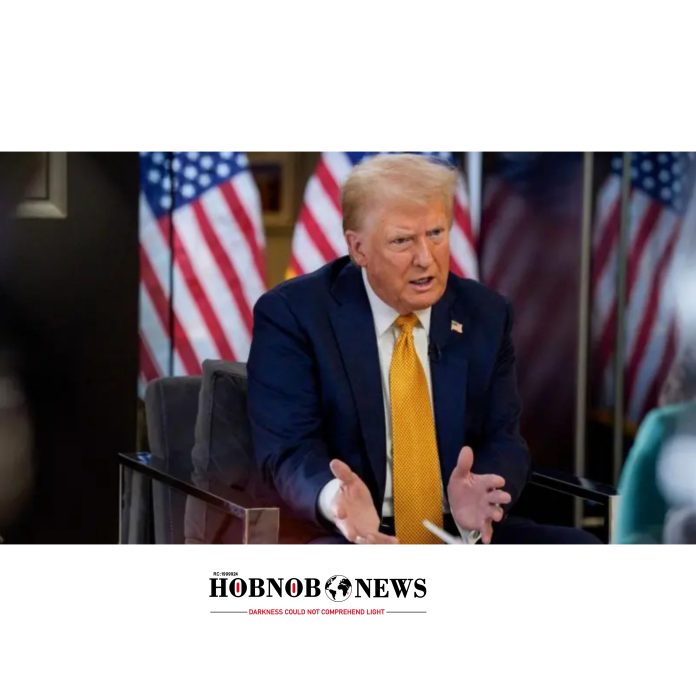President-elect Donald Trump has announced plans to address pardons for individuals involved in the 2021 US Capitol riot immediately upon taking office. Speaking during his first major interview since his election victory, Trump told NBC’s Meet the Press that these individuals are enduring harsh conditions, stating, “These people are living in hell.” He confirmed his intention to act swiftly, saying pardons could come as early as “the first day” of his administration.
Trump also discussed his goal to end birthright citizenship for children born in the U.S. to non-citizen parents. While this right is enshrined in the 14th Amendment of the Constitution, which grants citizenship to “all persons born” in the country, Trump said, “We’re going to have to get it changed.” He suggested that changes could involve both executive action and public support. Additionally, he reaffirmed his commitment to deporting undocumented immigrants, including those with family members who are U.S. citizens, while offering support for “Dreamers,” beneficiaries of the Deferred Action for Childhood Arrivals (DACA) program. “I will work with the Democrats on a plan,” Trump said, acknowledging their contributions to society.
In the interview, Trump pledged to sign numerous executive orders on immigration, energy, and the economy after his inauguration on January 20. He hinted at reducing aid to Ukraine, stating that the country should “probably” expect less support under his leadership. On NATO, Trump offered conditional support: “If they’re paying their bills, and if I think they’re treating us fairly, the answer is absolutely, I’d stay with NATO.”
When pressed on other key issues, Trump provided a mix of clarity and ambiguity. Regarding abortion, he said he would not restrict abortion pills but avoided making a firm commitment, saying, “Well, I commit. I mean… things change.” On tariffs, he acknowledged the potential impact on consumer prices, stating, “I can’t guarantee anything. I can’t guarantee tomorrow.”
Trump reiterated his opposition to cutting or raising the eligibility age for Social Security, promising to make the program “more efficient” but offering no specific details. On healthcare, he revived his controversial suggestion of a link between autism and childhood vaccines, which has been debunked by extensive research. Trump noted that his health secretary nominee, vaccine skeptic Robert F. Kennedy Jr., would investigate the matter further.
Despite his focus on forward-looking policies, Trump expressed lingering grievances about his political opponents. He indicated that some Democratic lawmakers who investigated the Capitol riot “should go to jail.” However, he signaled a reluctance to pursue legal action against outgoing President Joe Biden, stating, “I’m not looking to go back into the past. I’m looking to make our country successful. Retribution will be through success.”
Trump also criticized the conditions faced by Capitol riot defendants, calling their detention facilities “filthy” and “disgusting.” He emphasized that his administration would evaluate each case independently while moving quickly on potential pardons.
Outgoing President Biden recently issued a sweeping pardon to his son, Hunter Biden, and is reportedly considering further pardons for political allies. Trump suggested he might take a different approach, stating he would only direct the FBI to investigate individuals if there was evidence of wrongdoing. “If they were crooked, if they did something wrong, if they have broken the law, probably. They went after me, and I did nothing wrong.”
Liz Cheney, a former Republican congresswoman and member of the House committee that investigated Trump, criticized his remarks, calling them “a continuation of his assault on the rule of law.” Cheney’s response reflects ongoing tensions between Trump and political figures who opposed him.
Trump’s wide-ranging interview highlighted his key priorities as he prepares to return to the White House. From immigration reform to international alliances, his agenda promises significant shifts in policy. However, his comments also reveal a leader navigating a complex political landscape, balancing retribution with aspirations for national unity.

